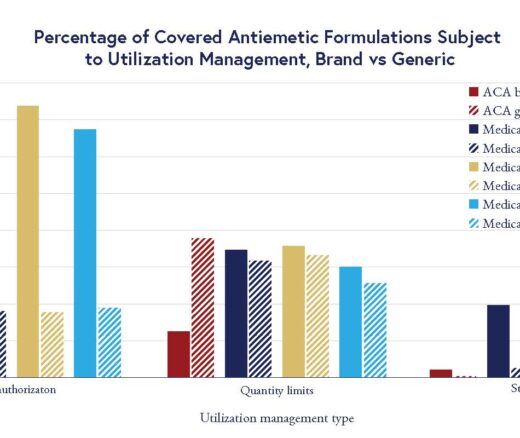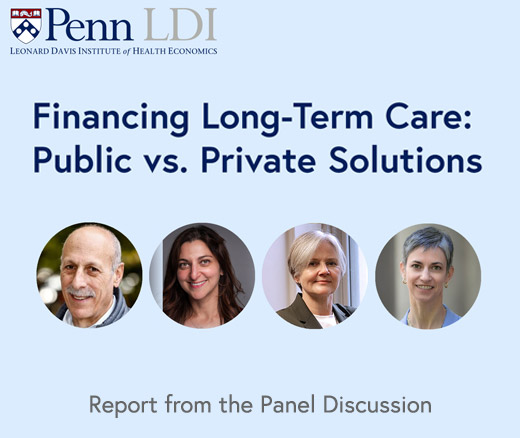
Applying for SNAP Just Got Harder—But New Evidence Shows Making It Easier May Cut Hunger
Administrative Hurdles, Not Just Income Rules, Shape Who Gets Food Assistance, LDI Fellows Show—Underscoring Policy’s Power to Affect Food Insecurity
In Their Own Words

The following excerpt is from an op-ed that first appeared in STAT News on January 11th, 2024.
My daughter Katie was born with severe disabilities. She went on to develop profound autism, attention deficit disorder, and obsessive-compulsive disorder. The hardest part for her is knowing that she’s different but not understanding how or why. My career as a health care manager and now a researcher has been derailed and fragmented because I have a profoundly disabled daughter who has undergone so many treatments and required special schools.
Still, she has grown up. At 21, she now has health insurance and stable income through Medicaid and Social Security. She is fortunate to live in 24/7/365 state-supervised residential housing. The abrupt transition from school-age support to limited adult services is aptly termed “the cliff.” I often wonder: What will happen to my daughter when I am too old to advocate for her?
The good news for both of us is that as of late September, the National Institutes of Health recognizes people with disabilities as a minority population that experiences health disparities. Other recognized health disparities groups include racial and ethnic minorities, people with low socioeconomic status, rural underserved communities, and sexual and gender minorities. This new designation will eventually bring new research-based, systemwide interventions, leading to improved health outcomes.
Twenty-seven percent of the U.S. population lives with a disability, and nearly half of those say they are in bad health. Those with disabilities face a greater incidence of physical and mental ailments, including obesity, diabetes, cardiovascular disease, addiction, and mental illness, as well as increased rates of morbidity and mortality. They struggle to access high-quality medical care and suffer from stigma, biases, and ableism. People with disabilities are also subject to social disadvantage and marginalization.
Read the entire op-ed here.


Administrative Hurdles, Not Just Income Rules, Shape Who Gets Food Assistance, LDI Fellows Show—Underscoring Policy’s Power to Affect Food Insecurity

Chart of the Day: LDI Researchers Report Major Coverage Differences Across ACA and Medicaid Plans, Affecting Access to Drugs That Treat Chemo-Related Nausea

A Penn LDI Virtual Panel Looks Ahead at New Possibilities

Insurers Avoid Counties With Small Populations and Poor Health but a New LDI Study Finds Limited Evidence of Anticompetitive Behavior

The Evidence Suggests a Ban on Ads May Not Be A Well-Targeted Solution

Study of Six Large Language Models Found Big Differences in Responses to Clinical Scenarios